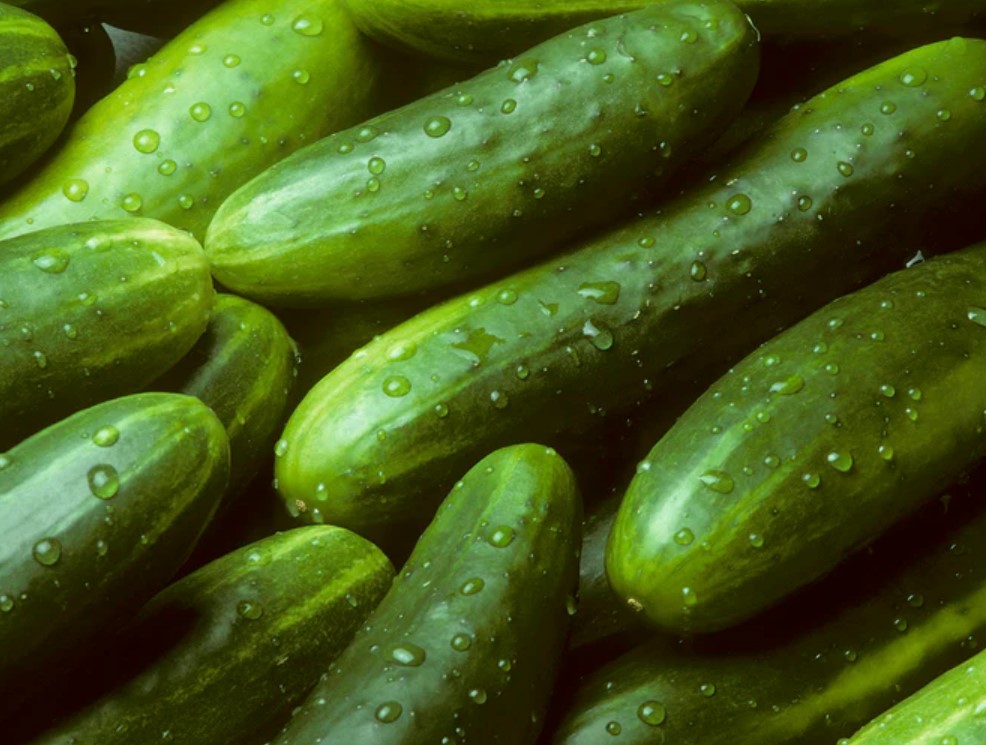Can Cats Eat Cucumbers?
Can cats eat cucumbers? In this article, we’ll dive deep into whether cucumbers are safe for cats, the potential health benefits and risks, and how to safely introduce this food to your furry friend. Follow Cat Memorial Stones !!
Nutritional Value of Cucumbers

Cucumbers are low in calories and consist primarily of water, making them a hydrating and refreshing snack for humans. Here’s a breakdown of the primary nutrients found in cucumbers:
- Water: Cucumbers are composed of about 95% water, making them an excellent source of hydration.
- Vitamins: Cucumbers contain small amounts of vitamins K, C, and A.
- Minerals: They provide trace amounts of important minerals like potassium and magnesium.
- Fiber: Cucumbers are a good source of dietary fiber, which can aid in digestion.
While cucumbers do contain vitamins and minerals, it’s important to note that these nutrients are present in very small amounts and are not sufficient to meet a cat’s dietary needs. Cats are obligate carnivores, meaning they require a diet primarily based on animal protein to thrive.
Understanding Cats’ Dietary Needs
Cats are obligate carnivores, meaning their diet primarily consists of animal-based proteins. Their digestive systems are designed to process meat, which provides essential nutrients like taurine, arginine, and arachidonic acid. These nutrients are crucial for maintaining their overall health, including heart function, vision, and reproductive health.
Can Cats Eat Cucumbers?
Yes, cats can eat cucumbers in moderation. Cucumbers are non-toxic to cats, and if your feline is interested, they can safely enjoy a small slice or two as an occasional treat. However, cucumbers should not replace a cat’s primary diet, which should consist mainly of high-quality, species-appropriate cat food rich in animal-based proteins.

>>> Click Can cats eat cashews? Are cashews toxic to cats?
Potential Health Benefits of Cucumbers for Cats
While cucumbers are not a necessary component of a cat’s diet, there are a few potential benefits of offering them as an occasional treat:
- Hydration: Since cucumbers contain a high water content, they can help keep your cat hydrated, especially on hot days or if your cat doesn’t drink enough water.
- Low in Calories: Cucumbers are low in calories and fat, making them a healthy treat for overweight or less active cats who need to watch their calorie intake.
- Digestive Aid: The fiber in cucumbers may help support healthy digestion and prevent constipation in cats, though too much fiber can cause digestive upset.
Potential Risks of Feeding Cucumbers to Cats
While cucumbers are generally safe for cats, there are still a few considerations to keep in mind:
- Digestive Upset: Cats have sensitive digestive systems, and introducing new foods, especially in large quantities, can lead to digestive issues such as vomiting or diarrhea. Always start with a small amount and monitor your cat’s reaction.
- Choking Hazard: Cats are more likely to swallow food whole rather than chew it thoroughly. To avoid choking, it’s best to cut cucumbers into small, bite-sized pieces.
- Pesticides: Cucumbers, like many fruits and vegetables, may be treated with pesticides that can be harmful to cats. Always wash cucumbers thoroughly or opt for organic varieties to reduce the risk of pesticide exposure.
- Nutritional Imbalance: While cucumbers are fine in moderation, a diet high in non-nutritive foods like cucumbers can lead to nutritional imbalances. Cats require specific nutrients such as taurine, which is found in meat, to stay healthy. Cucumbers should never replace a balanced cat food diet.
How to Safely Feed Cucumbers to Cats
If you’d like to offer your cat cucumber as a treat, here’s how to do it safely:
- Wash Thoroughly: Always wash the cucumber thoroughly to remove any dirt, pesticides, or chemicals that could be harmful to your cat.
- Peel the Skin: The skin of cucumbers can be tough and difficult for cats to digest. If you’re concerned, peeling the cucumber can make it easier for your cat to eat.
- Cut into Small Pieces: Slice the cucumber into small, manageable pieces to reduce the risk of choking.
- Moderation is Key: Offer only a small amount of cucumber at a time. A slice or two is enough as an occasional treat. Monitor your cat closely for any signs of digestive upset.
>>> Read: Can Cats Eat Catnip?
Why Are Cats Afraid of Cucumbers?

If you’ve spent any time on the internet, you may have seen viral videos of cats jumping in fear when they encounter a cucumber. But why are cats afraid of cucumbers?
The answer isn’t specific to cucumbers. Cats are naturally wary of anything that suddenly appears in their environment, especially when it’s something unfamiliar. When a cucumber is placed behind a cat without them noticing, they may be startled when they turn around and see it. This reaction is likely a combination of surprise and instinct — the long, green shape of the cucumber may also resemble a snake, triggering a fear response.
While these videos may seem amusing, intentionally startling your cat can cause unnecessary stress and anxiety. It’s best to avoid scaring your cat with cucumbers or any other objects.
Alternatives to Cucumbers for Cats
If your cat doesn’t seem interested in cucumbers or you’re looking for other safe fruits and vegetables to offer, there are several other options you can consider:
- Pumpkin: Plain, cooked pumpkin is great for cats and can help with digestion due to its high fiber content.
- Carrots: Cooked or steamed carrots can be given to cats in small amounts. Avoid raw carrots as they can be hard for cats to chew.
- Blueberries: These antioxidant-rich berries can be offered in moderation as a treat.
- Zucchini: Similar to cucumbers, zucchini is hydrating and low in calories, making it another safe option for cats.
Always remember to introduce new foods slowly and in small amounts. Never force your cat to eat something they don’t want, and always prioritize their balanced, high-protein diet.
Conclusion: Should You Feed Cucumbers to Your Cat?
In conclusion, cucumbers are safe for cats to eat in moderation. They offer hydration and a low-calorie treat option but should not replace the essential nutrients your cat needs from their regular diet. Always introduce cucumbers or any new food slowly and monitor your cat for any adverse reactions.
As with any dietary change, it’s a good idea to consult your veterinarian before adding new foods to your cat’s diet. Although cucumbers can add variety to your cat’s snacks, they should remain an occasional treat, with your cat’s primary nutrition coming from a high-quality, protein-rich cat food.
FAQs
- Can cats eat cucumber skin?
While cats can technically eat cucumber skin, it’s generally recommended to peel it off before offering it to your feline friend.
Here’s why:
-
- Digestive issues: The skin of a cucumber is higher in fiber than the inner flesh. Cats’ digestive systems aren’t designed to handle large amounts of fiber, so eating too much can lead to upset stomachs or diarrhea.
- Choking hazard: The skin can be tough and difficult for cats to chew, potentially increasing the risk of choking.
If you want to offer your cat cucumber, it’s best to peel it and cut it into small, bite-sized pieces. Always ensure the cucumber is fresh and free of any harmful chemicals
- Can cats eat cucumber seeds?
Yes, cats can eat cucumber seeds. They are generally safe for cats in small quantities.
- Can cats have cucumber water?
Yes, cats can have cucumber water. In fact, it can be a great way to encourage hydration, especially during hot weather. Cucumbers are high in water content, which can help keep your feline friend hydrated.
- Can kittens eat cucumbers?
Yes, kittens can eat cucumbers in moderation. They are not toxic to cats. However, cucumbers are primarily water and don’t offer significant nutritional value for cats, who are obligate carnivores.
